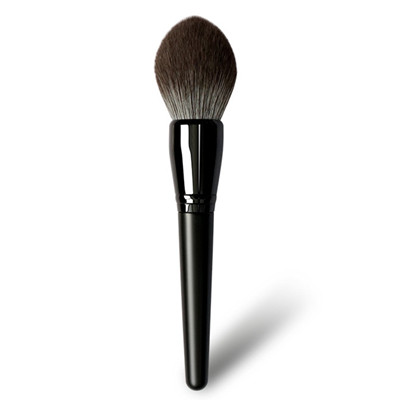BEAUTY BLENDER :
Pros
Beauty blenders are for full coverage make up. They allow your foundation to be effectively pressed onto and into your skin,they blend your makeup exceptionally and don’t usually leave streaks or blend lines. They can create a more flawless and natural look. If you’ve got dry skin, a beauty blender is meant for you. As the bristles of the foundation brush may irritate your skin and make it look flaky. The smooth, soft surface of a beauty blender is much gentler on the skin, and can help you flawlessly apply makeup without leaving you with a cake face. To use beauty blender, firstly moisturize your face, dot with your fave foundation using your finger, then dab it with a moisten beauty blender and it gives a flawless look.
Cons
- Firstly, beauty blender will absorb more cosmetics than brushes.
- Secondly, using a beauty blender can be a tad bit time consuming,as the best method of applying makeup with a blender is to ‘stipple’ it on in brief patting motions.
- Thirdly,beauty blender doesn’t work too well with light coverage foundations—you’ll only end up using a lot more foundation and will end up spending more.
- Finally, a beauty blender needs to ideally be cleaned after every use—something that a lot of us don’t really have the time or patience for.
MAKEUP BRUSHES :
Pros
If you're looking for an airbrushed look, a makeup brush is your best bet. Brushes are a lot more bendable and can be extremely precise when it comes to the application of foundation. Makeup brushes are also ideal if you're the kind of person who prefers powder to liquid foundation, as makeup brush works best both with powdered and liquid foundations. It's also way easier to build coverage with a makeup brush. As for the coverage, it gives sheer look.
Cons
There's always the risk of a brush leaving your face looking streaked, and can also make your blend lines visible, which makes your look seem totally unnatural. For dry and sensitive skin, foundation brush may irritate your skin.
Actually,if you’re a beginner and not good at using brushes,you should use the beauty blender,because it will be easy to control,and help you to create a perfect makeup. But the celebrity makeup artists usually use makeup brushes in the whole makeup process.
Welcome to custom makeup brush and beauty blenders from us. We will offer high quality makeup brushes and beauty blenders, professional service and affordable price to support your brand development.







